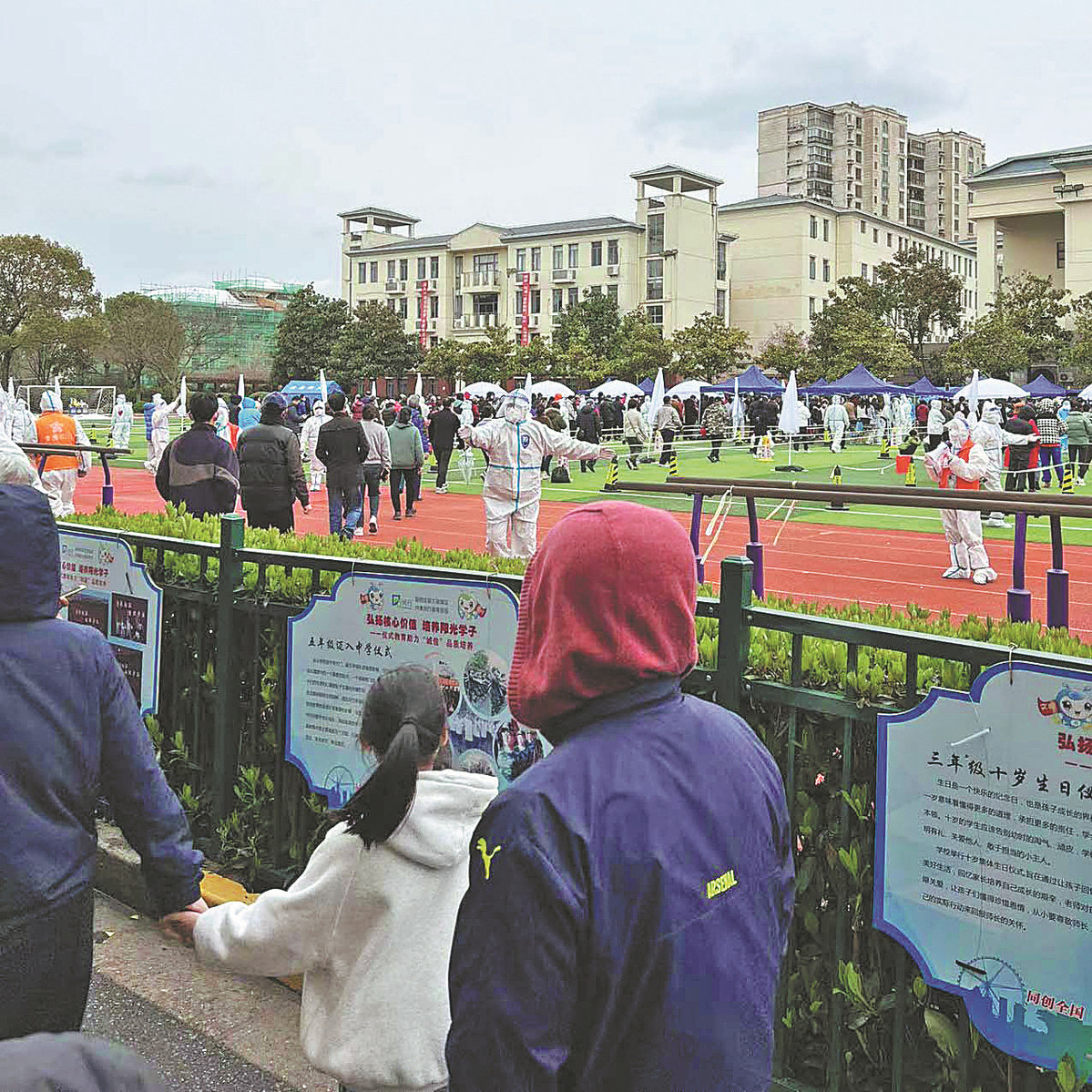Volunteers help municipality through difficult times


Thousands of residents lend a hand in latest COVID-19 wave
Elsie Chao, 31, who has lived in Shanghai for six years, has rich experience as a volunteer in caring for the elderly and children in her home city of Hong Kong and also in Europe.
In Shanghai, she has had her first experience of volunteering in the public health sector, helping with a novel coronavirus grid-screening program from March 18 to 20 in the neighborhood where she lives in Pudong district.
"Quite a few residents here come from different countries and regions. As I have lived in Europe, I can help communicate with them, and I also took the initiative to contact neighborhood officials," Chao said.
She helped explain the grid-screening plan to local residents and expatriates, prepare a QR code for nucleic acid tests, and also maintained order at the location.
"The entire country has lent a helping hand to Hong Kong throughout its latest wave of COVID-19, and I'd like to do my bit for Shanghai, my second home," she said.
More than 50,000 residents in the city, which has a population of nearly 25 million, have joined volunteers such as Chao since the start of this month in helping with the ongoing fight against a COVID-19 outbreak.
They responded to more than 2,000 related projects published via official channels online and offline and worked in different positions.
The volunteers took residents' temperatures and checked their health QR codes when they entered public venues, assisted in organizing neighborhood nucleic acid testing, and transported and delivered supplies.
Zheng Yinghao, deputy director of the Shanghai Municipal Civilization Office, said, "These residents braved rain and winds on the frontline in the fight against the epidemic and have stood out in helping the city through this challenging period.
"Their warm-hearted gestures have been widely appreciated. The volunteers act as a 'business card' in showing the city's soft power."
Zheng said more volunteers will be needed for psychological counseling, to impart health knowledge, refute rumors, and for foreign language translation.
Chao said the work was intensive, demanded patience, and lasted until midnight every day, but it was worthwhile and she felt she could help fellow residents in different ways.
Due to language barriers, expatriates might experience problems when asked to line up and undergo testing in neighborhoods. Chao said she helped explain the grid-screening plan, which is aimed at stopping infections spreading.
From March 16 to 20, more than 30 million nucleic acid tests were conducted on residents during a citywide grid-screening process. On Monday, Shanghai began a new round of nucleic acid testing for residents.























